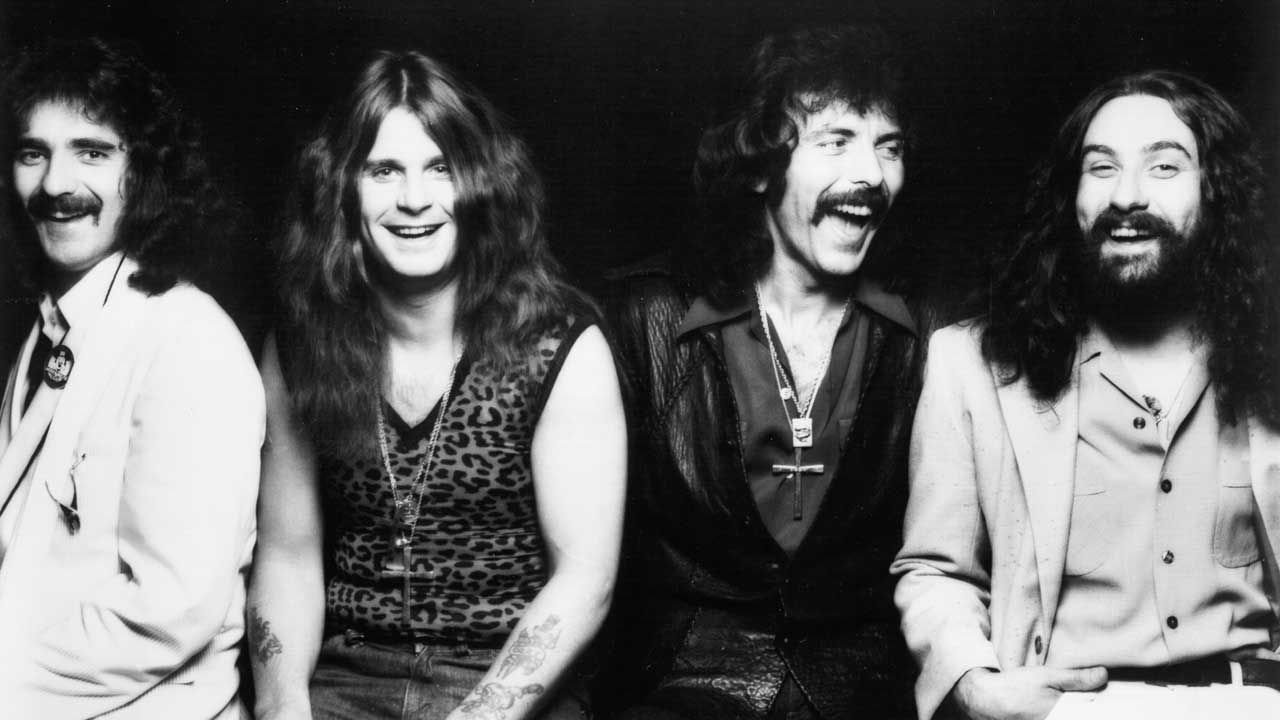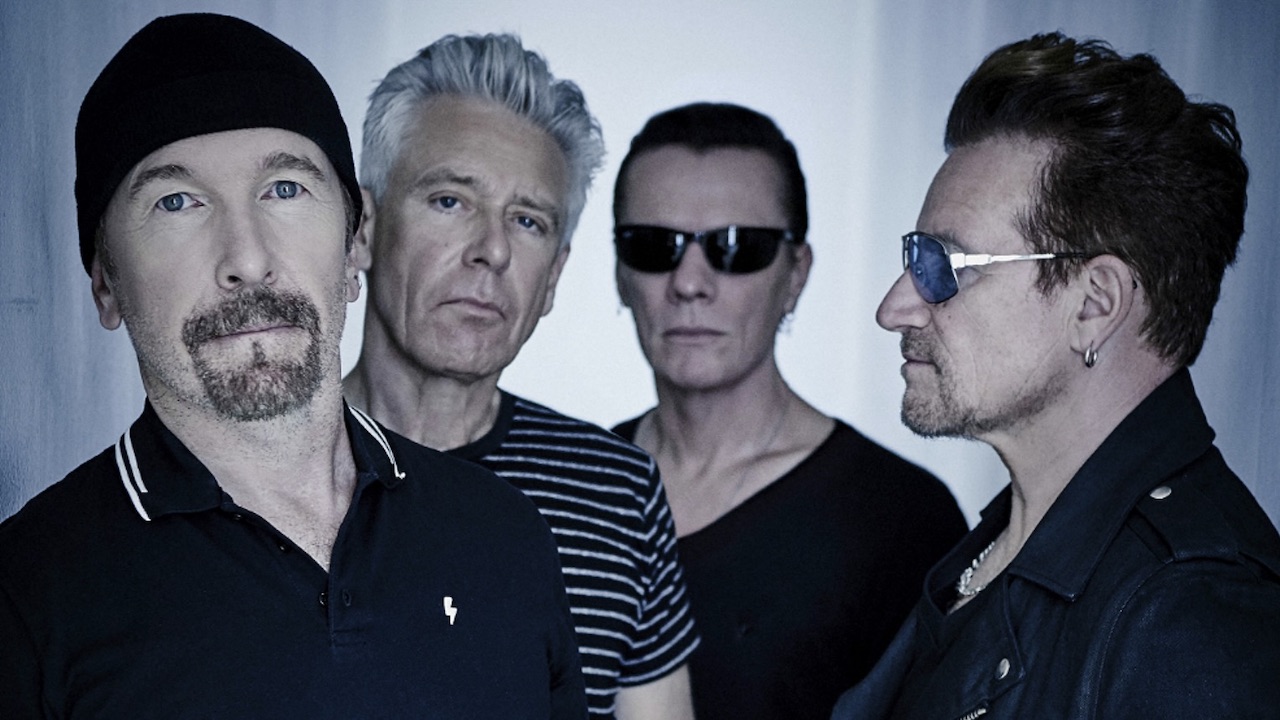"You just can’t make it big enough, rude enough or loud enough": Producer Tom Allom on engineering Black Sabbath and helping create the sound of heavy metal
'Colonel' Tom Allom created the iconic tolling bell on Black Sabbath's debut album, although he admits to not liking their music very much

Select the newsletters you’d like to receive. Then, add your email to sign up.
You are now subscribed
Your newsletter sign-up was successful
Want to add more newsletters?

Every Friday
Louder
Louder’s weekly newsletter is jam-packed with the team’s personal highlights from the last seven days, including features, breaking news, reviews and tons of juicy exclusives from the world of alternative music.

Every Friday
Classic Rock
The Classic Rock newsletter is an essential read for the discerning rock fan. Every week we bring you the news, reviews and the very best features and interviews from our extensive archive. Written by rock fans for rock fans.

Every Friday
Metal Hammer
For the last four decades Metal Hammer has been the world’s greatest metal magazine. Created by metalheads for metalheads, ‘Hammer takes you behind the scenes, closer to the action, and nearer to the bands that you love the most.

Every Friday
Prog
The Prog newsletter brings you the very best of Prog Magazine and our website, every Friday. We'll deliver you the very latest news from the Prog universe, informative features and archive material from Prog’s impressive vault.
The first three Black Sabbath albums (Black Sabbath, Paranoid and Master Of Reality) were the sonic responsibilities of the dynamic team of Rodger Bain and ‘Colonel’ Tom Allom. These two men helped to pioneer a deep, resonant, bludgeoning heavy metal sound that is still revered and, to a degree, replicated to this very day.
Riding the coattails of his early work with Sabbath, Rodger masterminded the early sounds of a couple of other hard rock heavyweights, namely Budgie and Judas Priest. He would also work with some forgotten duds like obscure jazz progsters Hannibal, Bad Company soundalikes Dirty Tricks and the wonderfully monikered, but rather unsatisfactory, Jethro Tull spin-off Wild Turkey.
Tom has supplied knob work for a number of classic rockers over the years including albums by Def Leppard, Krokus, Y&T and (arguably his crowning glory) all of the Judas Priest albums from 1979’s Unleashed In The East masterpiece right up to 1988’s Ram It Down, before returning to work on 2016's Battle Cry and 2018's Firepower.
Sabbath’s first trio of albums were produced by Rodger Bain but engineered by the good Colonel himself. Tom still remembers those sessions vividly…
“I’d never heard anything so loud in my life,” he reveals with a wry smile over a Starbucks coffee. “Sabbath loomed up, plugged in and let rip. Tony [Iommi] had a double Marshall stack and two 4x12 cabinets which pretty much took the roof off. In fact, a TV advertising company occupied one of the floors above the studio [London’s Regent Sound] and I remember getting an irate phone call from a director complaining that, due to the vibration, their camera was waltzing unaided around the studio. Actually, Tony was a real pleasure to work with – he was very talented.
“Geezer’s bass was even louder! In fact, it was so loud and distorted that Rodger suggested that he should DI [Direct Input] the bass into the mixing desk rather than attempt to record it via a mic. At first Geez was horrified but when he listened to the playback he confessed that it was the first time he’d actually heard himself playing any notes.
“Bill was a great drummer,” confirms Tom. “I suggested that we record him in stereo which was practically unheard of at the time. I think we used just three or four mics in total on those sessions.”
Sign up below to get the latest from Classic Rock, plus exclusive special offers, direct to your inbox!

How did you and Rodger get along with the band?
Well, for a start, you couldn’t avoid their personalities. They were all so full-on; completely mental. Actually, and I’m not trying to be condescending here, but I had never associated with people like them before – you’d have to have lived in the backstreets of Birmingham to have been exposed to that sort of rough-hewn charm. They were gang-like, but very focussed. Bill was completely nuts. In fact when we did the second album he came in the studio with a broken leg in a plaster cast – apparently he’d fallen out of a lamp post. Luckily it was his hi-hat foot and not the kick drum.
Was the band ‘produced’ in the classic sense or did you just record them?
The production was down to one thing: we would wind them up, plug them in and then push the ‘record’ button! The one thing that did strike me right from the beginning was that, despite their wild enthusiasm, they were incredibly well-rehearsed and the only real ‘production’ finesse was to double-track Tony’s guitar parts – there wasn’t a rhythm guitarist so we had to thicken up the sound.
And the tolling bell heard on the title track?
That was a quick sound effect that I made with a single tubular bell I found lying around in the studio. I remember moving it closer and then away from the mic trying to make it sound like the wind was carrying the sound across the moors.
How about when you recorded Paranoid?
The band had been touring a hell of a lot but they were still very much the same characters and the music, like their first album, was well-rehearsed. I wasn’t really aware that there was any danger of them having success at that stage. In fact when Paranoid came out someone casually mentioned to me that they were doing well so I checked out the charts and they were selling shed loads of records – I was pretty much oblivious to it.
I have to tell you that I personally didn’t much like the music, which is rather ironic as I pretty much ended up working with little else for a decade or more. I should say, however, that it is fantastic music to make because there are no limits – you just can’t make it big enough, rude enough or loud enough.
And Master Of Reality?
That one was recorded at Morgan Studios in Willesden, north west London. They had a bar in there which was, of course, very handy for all concerned but the actual recording took an interminable amount of time as they were underrehearsed and hadn’t written any songs – I think it took about two months in total. All they had were a few riffs but no arrangements or lyrics. I can remember Geezer hurriedly writing poems and Ozzy complaining that he couldn’t fit the words into the music!
For both Tom and Rodger Master Of Reality was the end of a beautiful relationship. For Vol. 4 Sabbath moved their base of operations to the more luxurious recording facilities of the Record Plant in Los Angeles where, of course, things took a turn towards the chaotic.
The original version of this feature appeared in Classic Rock 106, in June 2007.
Derek’s lifelong love of rock and metal goes back to the ’70s when he became a UK underground legend for sharing tapes of the most obscure American bands. After many years championing acts as a writer for Kerrang!, Derek moved to New York and worked in A&R at Atco Records, signing a number of great acts including the multi-platinum Pantera and Dream Theater. He moved back to the UK and in 2006 started Rock Candy Records, which specialises in reissues of rock and metal albums from the 1970s and 1980s.
